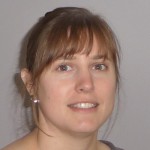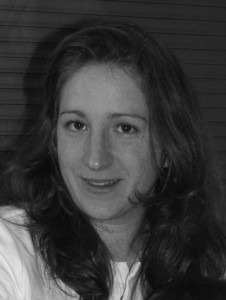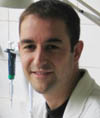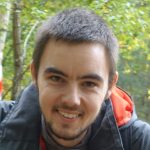Topics
The proposed themes are the result of the fusion of projects developed by the different team members. The integration of these themes in one team reflects a common global objective, a striking resemblance in the study scale and in the chosen approaches, and interactions that are being formalised.
The global objective is to better understand how the different components of the genome act in populations and what are the consequences on genome evolution, its evolvability, and phenotypes that arise.
Natural selection, mutations and genetic drift are major driving forces of populations and species evolution. Natural selection acts at the phenotype level, which is itself dependant on the interactions between genotype and environment. Inside the genome, the environment can be assimilated with the epigenetic status, the genotype being represented by the genes and their interactions (epistasy). Hence, it is at the genome level but in the context of population that the team project lies.
Topics that interest us mostly are evolution and the dynamics of different genetic systems in populations and ultimately at the species scale, the interactions in these systems, epigenetics influence, and the consequences at the phenotypic and adaptive level. Two types of genetic systems are studied: 1) Complex genetic systems, which evolution is still difficult to understand. They are, on the one hand, gene sets controlling quantitative characteristics, and also gene networks submitted to epistatic effects or of canalisation, or further on the set of sequences present on a chromosome. 2) Genetic system so called “egoistic systems” which can amplify them-selves in population more rapidly or more efficiently than possible by the mendeleian segregation or darwinian selection. Among them are disruptors of segregation that promote their own transmission at the expense of alternate alleles, or the transposable elements, which replicate faster than the host genome and use sexual reproduction to invade populations.
The various projects combine in variable amount experimental , bio-informatic and theoretical approaches. The experimental part includes experimental evolution and natural populations analysis combined with morphological analysis, transcriptomics or genomics. Our main model is Drosophila (D. melanogaster and D. simulans). The bio-informatics part is aimed at a better understanding of sequences evolution at the scale of genomes and populations.
Keywords : Transposable elements, meiotic segregation distorter, Drosophila melanogaster, Drosophila simulans, evolvability
Propositions de stage dans l’équipe
Team members
Researchers
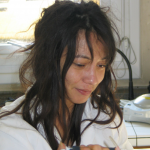 |
Aurélie Hua-Van Team leader Associate Professor at the University Paris-Sud 11 (Orsay) Molecular evolution and evolutionary dynamics of transposable elements in genomes Regulation of transposable element mariner in drosophila |
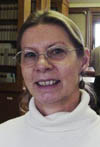 |
Catherine Montchamp-Moreau Head of the laboratory CNRS Research Director Genetic conflicts, molecular bases and evolutionary history of sex-ratio meiotic distortion, molecular bases of reproductive isolation and adaptation. |
![capy[1]](https://www.egce.universite-paris-saclay.fr/wp-content/uploads/2013/12/capy1.jpg) |
Pierre Capy Director of IDEEV Professor at the University Paris-Sud (Orsay); Transposable element mariner. Evolution of TE structure. Invasion dynamics and long-term invasion of TEs. |
 |
Jean David Emeritus CNRS Research Director. Phenotypic plasticity Temperature tolerance |
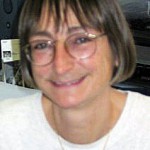 |
Sylvie Aulard
Assistant professor at University Paris 6 (Université Pierre et Marie Curie). Cytogenetics, Inversion polymorphism, transposable elements and chromosomal rearrangement, chromosomal evolution |
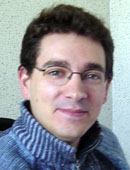 |
Arnaud Le Rouzic CNRS Senior Researcher Theoretical approaches of genome evolution |
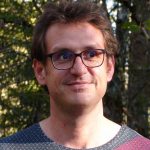 |
Clément Gilbert CNRS Researcher Horizontal transfer and transposable elements |
Engineers and Technicians
PhD students
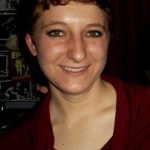 |
Cécile Courret PhD student, Graduate School “Structure et Dynamique des Systèmes Vivants”, University Paris-Saclay Molecular bases of the genetic conflict caused by sex chromosome segregation distortion in Drosophila simulans.Supervisor : Catherine Montchamp-Moreau. |
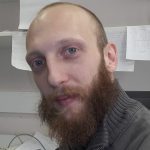 |
Andreas Odorico PhD student, Graduate School “Structure et Dynamique des Systèmes Vivants”, University Paris-Saclay Evolution of gene regulatory networks: theoretical models vs. empirical data.Supervisor : Arnaud Le Rouzic |
|
|
Vincent Loiseau PhD student, Graduate School “Structure et Dynamique des Systèmes Vivants”, University Paris-Saclay Study of mechanisms and frequency of virus-mediated horizontal transfers of genetic material between animalsSupervisor : Clément Gilbert |
Former Postdocs
Jean-Tristan Brandenbourg, Post-doctorant IDEEV. Analysis of mariner dynamics in D. melanogaster genome.
Pierre Gérard, Post-doctorant sur projet ANR SexChroDrive. Genetic dissection of sex chromosome meiotic drive in Drosophila simulans.
Michele Schiffer, CNRS Post-doctorate fellow. Evolutionary systematics of drosophildae. Currently working at The University of Melbourne with Professor Ary Hoffmann. The effect of cold stress on hsp expression in drosophila.
Anna Popkova, CNRS Post-doctorate fellow. Candidate genes for the sex-ratio segregation distortion.
Cécile Campagne, Engineer on the ANR project TRANSBIODIV. Neutral and functional trans-specific biodiversity: theoretical developments and quantification on model organisms. Molecular polymorphism, phylogeography, molecular basis of adaptation.
Michel Cazemajor, researcher on the ANR project SELMULTILOC. Population genetics of the sex-ratio segregation distortion system.
Former PhD. students
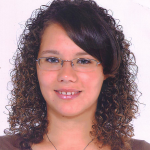 |
Maryem Bouallegue PhD student, SDSV Graduate School , University Paris-Saclay/University of TunisSupervisor : Pierre Capy |
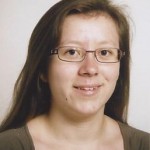 |
Estelle Rünneburger PhD student, SDSV Graduate School (Paris-sud 11 University) Evolution des réseaux de gènes. Causes et conséquences de l’évolution du phénotype.Supervisor : Arnaud Le Rouzic |
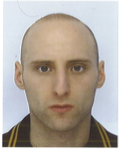 |
Bastien Saint-Léandre PhD student, SDSV Graduate School (Paris-sud 11 University) Régulation de l’élément mariner chez les drosophiles.Supervisor : Pierre Capy. |
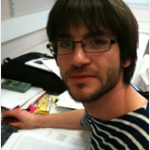 |
Quentin Helleu PhD student, SDSV Graduate School (Paris-sud 11 University) Cartographie génétique d’éléments distorteurs chez Drosophila simulans. Supervisor : Catherine Montchamp-Moreau. |
 |
Héloïse Bastide PhD student, GGC Graduate School (Paris-sud 11 University).Evolutionary history of sex-ratio segregation distortion in Drosophila simulans”. Population molecular polyporphism, phylogeography.. |
 |
Delphine Legrand PhD student, GGC Graduate School (Paris-sud 11 University). .Phylogeography and evolution of drosophila species of the melanogaster subgroup in the Indian Ocean archipelagos. Molecular Polymorphism, phylogeography, molecular basis of adaptation |
 |
Lucie Fouvry PhD student, GGC Graduate School (Paris-sud 11 University).Molecular basis and evolution of sex-ratio segregation distortion. Currently High school teacher. |
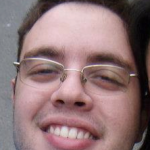 |
Gabriel Da Luz Wallau PhD student, Universidade Federal de Santa Maria – BRAZIL Evolution and horizontal transfer of mariner element in drosophila sequenced genomes.Supervisor : Pierre Capy/Elgion Loreto (Brazil) |
 |
Thibaud Boutin PhD student, GGC Graduate School (Paris-sud 11 University). Long term invasion dynamics of transposable elements, a theoretical approach. Thèse soutenue le 16 septembre 2010 |
 |
Sophie Picot PhD student, GGC Graduate School (Paris-sud 11 University). Activity of the transposable element mariner in natural populations of Drosophila simulans Thèse soutenue en 2008 |

